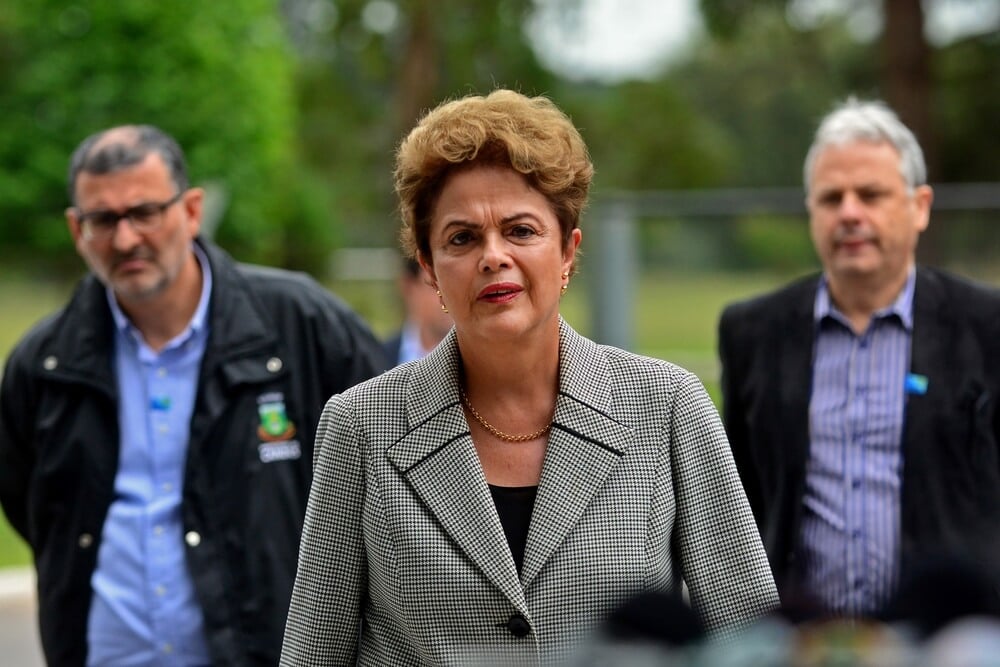Most of the global media and researchers believe that even today, 15 years after the founding of BRICS, it is still necessary to explain in detail the purpose and background of this organisation.
This is not without reason; in the run-up to the forthcoming summit in Russia from October 22–24, the BRICS leaders will once again discuss the fundamental issues that led to the founding of the organisation in 2009.
The summit in Kazan will be the first since BRICS doubled its membership, welcoming Egypt, Ethiopia, Saudi Arabia, Iran, and the UAE.
Despite Argentina's sudden withdrawal due to the arrival of President Javier Milei and Saudi Arabia's failure to ratify its membership, the organisation's largest expansion since its founding has proceeded relatively smoothly.
However, the summit in Kazan should show whether and to what extent the great expansion brings new quality (and strength) to this loose organisation or whether five more developing economies are just joining in the search for a solution to the basic goals that the "founding fathers" set for themselves 15 years ago.
Pause in expansion
According to officials of Russia, which this year chairs the BRICS, at least two dozen countries are in line for membership. But the Russian presidency does not give much hope that a new wave of expansion will follow.
"By the overwhelming majority, the ten nations decided to ‘take a pause’ with new members to ‘take in’ the new members who have doubled the association," said the head of Russian diplomacy, Sergey Lavrov, in a conversation with Belarusian officials, one of the states interested in BRICS membership, last June.
On the eve of the summit, Putin's adviser, Yuri Ushakov, indirectly confirmed that there will be no new wave of expansion and that the summit will primarily "focus on the organic integration of newcomers into the architecture of partnership mechanisms and on familiarising them with BRICS culture."
The position prevailed among the founders of the group that rather than focusing on new expansion, they needed to address questions related to the organisation's identity
Therefore, the position prevailed among the founders of the group that rather than focusing on new expansion, they needed to address questions related to the organisation's identity and, particularly, the realisation of its goals, which, even after 15 years, still seemed distant.
De-dollarisation again
Presiding Russia puts on the table, as a central topic, the increase in the use of national currencies in mutual trade, that is, the removal of dependence on payments in dollars and euros.
With regard to this topic, Russia aims to address its significant internal agenda, taking into account its economic isolation, which includes its exclusion from the SWIFT system.
Faced with the massive costs of the nearly three-year invasion of Ukraine, Russia emphasises one of the main aspects of the establishment of BRICS, namely de-dollarisation, primarily as an internal motive to boost its own economy.
Its advocacy for BRICS to truly achieve its long-standing priority is the driving force behind it.
BRICS' 15-year effort to reduce the participation of the US dollar in international finance is still not yielding the desired results
However, BRICS' 15-year effort to reduce the participation of the US dollar in international finance is still not yielding the desired results. Almost 60% of global foreign exchange reserves are in US dollars (an additional 20% in euros), 88% of all foreign exchange transactions, and 54% of export invoicing.
BRICS leaders will no doubt pay close attention to this issue at the summit in Kazan, following above all the impulse coming from China, as the bloc's most powerful member, to impose its currency as the primary substitute for the dollar.
In this regard, Russia is yielding to China's priority, once again prioritising its own interests, as it strives to maintain its economic exchange with China as the primary outlet for its isolated economy.
Without a shared political platform
The leaders of the anti-Western bloc will also focus on the state of their joint financial institutions, which were conceived as an alternative to the institutions that emerged from Bretton Woods, because they have not brought the desired effect in 15 years.
One of them, the New Development Bank, which was conceived as an alternative to the World Bank, managed to disburse only a third of the funds in the last decade, which the World Bank committed globally in 2021.
 The New Development Bank, which was conceived as an alternative to the World Bank, managed to disburse only a third of the funds in the last decade, which the World Bank committed globally in 2021 - Dilma Rousseff, the President of the NDB
The New Development Bank, which was conceived as an alternative to the World Bank, managed to disburse only a third of the funds in the last decade, which the World Bank committed globally in 2021 - Dilma Rousseff, the President of the NDB
The forthcoming BRICS summit in Russia will therefore remain a political stage for promoting the imperative to come together into a bloc strong enough to provide an alternative to the existing Western-dominated order.
It is expected to take a stance regarding the biggest current global crises, primarily in Ukraine and the Middle East. However, given the direct involvement of members such as Russia and Iran in these crises, it is nearly impossible to formulate shared positions in a manner that would significantly contribute to their resolution.
Therefore, even after the summit in Russia, BRICS will remain a platform for resolving bilateral interests among the members rather than a bloc with a shared, coherent global vision that it has the strength to implement.